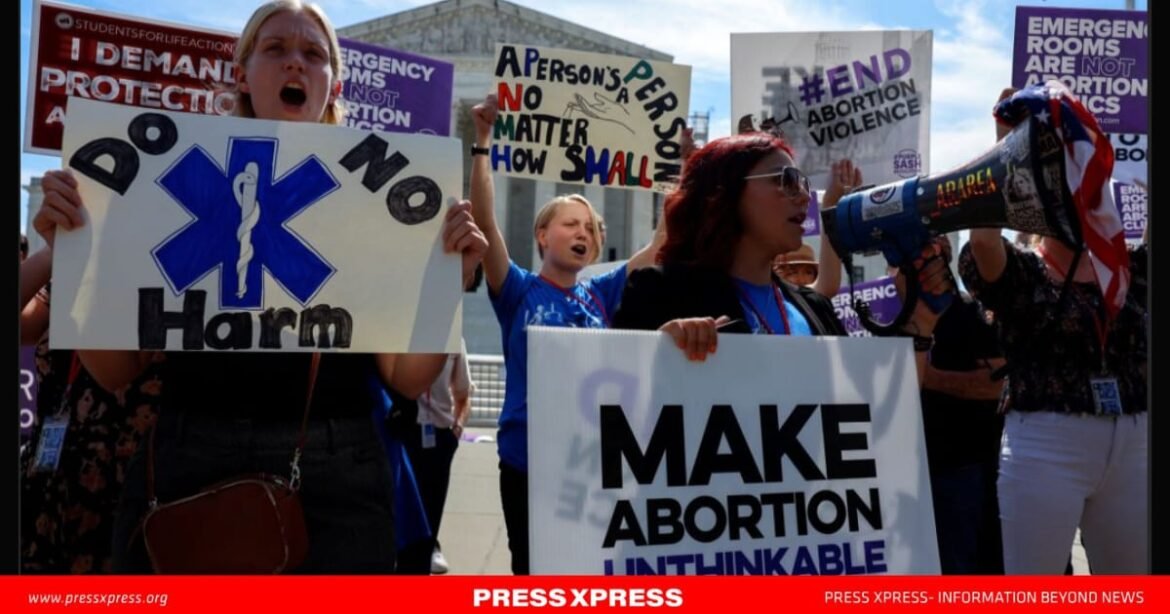Although President-elect Donald Trump has reiterated his campaign promise to leave abortion decisions to individual states, his administration is poised to influence the national landscape of reproductive health in significant ways.
During his 2016 campaign, Trump emphasized his intent to appoint Supreme Court justices to overturn Roe v. Wade. This promise materialized with the 2022 Dobbs v. Jackson Women’s Health Organization ruling, which returned the power to regulate abortion to the states. However, the decision sparked political backlash and created legal complexities that Trump’s second term cannot avoid addressing.
Federal Legal Cases and Policy Decisions Awaiting Trump’s Administration
Key among the challenges are two major cases that have already reached the Supreme Court and may reappear during Trump’s presidency. One case involves federal regulations that eased access to abortion pills, while the other centers on whether emergency room patients in states with abortion bans are entitled to life-saving abortion care when their health is at risk.
Trump will also encounter pressure from anti-abortion groups to reverse Biden-era policies that expanded abortion access following Dobbs. These groups may urge further actions to undermine blue states’ efforts to counteract the federal rollback of abortion protections. For example, Trump’s administration may decide whether to adjust regulations governing the abortion drug mifepristone, a topic already entangled in legal battles.
When asked about pending abortion-related decisions, Trump’s transition team reaffirmed his commitment to state-level decision-making on the issue. However, the federal government remains central to shaping abortion policy, from drug approval to public health funding and agency regulations. Abortion rights advocates warn that halting the Biden administration’s legal defenses of federal policies would amount to nationwide restrictions on abortion access, breaking Trump’s promise to avoid federal intervention.
“Trump might believe letting the courts restrict abortion access spares him political fallout,” said Julia Kaye, senior attorney at the ACLU Reproductive Freedom Project. “But if his administration stops defending these policies, he’s still reneging on his pledge to voters.”
The Legal Battle Over Mifepristone
One of the most prominent cases concerns mifepristone, part of a two-drug regimen used for abortions. Republican-led states are challenging Biden-era rules that allow the drug to be prescribed without an in-person visit and want its generic version pulled from the market. Whether Trump’s Justice Department defends the Food and Drug Administration’s regulations remains uncertain, though the manufacturer has intervened to continue the legal defense regardless of federal action.
Anti-abortion activists argue that regulatory changes, such as reinstating in-person dispensing requirements, could be implemented relatively quickly. However, more sweeping actions—like rescinding FDA approval for mifepristone—would face substantial legal and procedural hurdles.
Other Biden-Era Policies Under Scrutiny
Beyond mifepristone, Trump’s administration will inherit lawsuits targeting various Biden administration policies enacted after Dobbs. These include workplace protections for employees traveling for abortion care, patient privacy safeguards, and the withholding of federal health funds from states over abortion-related disputes.
One notable case concerns Idaho’s abortion ban, which lacks exceptions for severe but non-life-threatening health risks. The Biden Justice Department argued that federal law requires hospitals to provide abortion care in emergencies, challenging the state’s restrictions. Trump’s DOJ could drop the lawsuit, but affected patients or providers may intervene to keep it alive.
Navigating Political Pressure
Anti-abortion groups are pressuring Trump to adopt policies that reverse Biden-era measures without violating his promise to avoid federal abortion legislation. However, his nomination of Robert F. Kennedy Jr. as Health and Human Services secretary has raised doubts among activists about his administration’s commitment to advancing anti-abortion policies.
Trump’s broader actions on reproductive health remain uncertain. While he has ruled out signing federal abortion bans, questions linger about how far his administration will go to address the demands of anti-abortion advocates.
“President Trump says abortion policy should be left to the states,” said Eric Kniffin of the Ethics and Public Policy Center. “But his administration still has choices to make about whether to unwind Biden’s aggressive agency actions and level the playing field.”
As legal battles continue and political expectations mount, Trump’s next steps will be critical in shaping the future of abortion policy in America.


